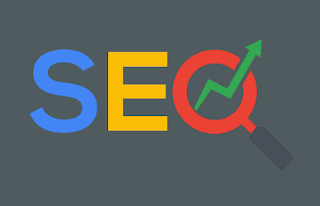"SEO Over Substance" examines why top-ranked Google articles may not always offer the most value to readers. It delves into the mechanics of search engines, the principles of SEO, and how they can sometimes prioritize visibility over content quality. The article emphasizes the need for a balanced approach, blending SEO with the creation of insightful, engaging content to foster user trust and engagement.
In the realm of digital information, a race has taken place where every piece of content seeks to grab the spotlight. This struggle is particularly apparent in the world of Search Engine Optimization (SEO). On one hand, we have a multitude of articles, research pieces, and blogs written with an emphasis on providing in-depth, useful information. On the other, we have content created primarily to comply with SEO rules for better visibility. Yet, often, the latter seems to overshadow the former in Google search results. So, the question arises: Why are the most useful articles not necessarily at the top of search results?
To answer this question, we first need to understand the primary purpose of search engines, the fundamentals of SEO, and the intersection of these two where the content creator and the consumer meet.
Search Engines and SEO: A Primer
Search engines like Google have one key objective: to provide the user with the most relevant information corresponding to their query. To achieve this, search engines use complex algorithms that take into account various factors, including the use of keywords, the site's credibility, and the quality of the content. This is where SEO comes into play. SEO involves the use of strategic methods to increase a webpage's visibility in search results by improving its compatibility with these algorithms.
SEO practices can range from including relevant keywords, optimizing page load speed, incorporating backlinks, to maintaining a user-friendly website structure. When done right, SEO can propel a website to the top of search results, increasing visibility and thereby driving more traffic.
The Dilemma: SEO vs. Quality Content
Herein lies the crux of our discussion: While SEO helps rank a website or a web page higher, it doesn't necessarily mean that the content is useful or valuable. For instance, an article can be well-optimized with keywords, backlinks, and a fast load time, but it may offer superficial information, or worse, be irrelevant or outdated. Conversely, an in-depth, well-researched article providing valuable insights may not rank high if it hasn't been properly optimized for search engines.
The Google Algorithm Paradox
Google's algorithm, while designed to promote relevant and quality content, can unintentionally favor well-optimized, SEO-driven content over genuinely useful articles. After all, the algorithm is a non-human entity that ranks websites based on quantifiable metrics rather than qualitative assessment of the content's value.
For instance, the algorithm highly values the inclusion of relevant keywords. A well-crafted SEO article can expertly weave these keywords into its content, thereby gaining favor in Google's eyes. However, keyword use doesn't always correlate with the value of the content.
Another example is backlinks. The algorithm considers a site with more high-quality backlinks as a credible source. But while an SEO-optimized site may have numerous backlinks, it doesn't guarantee that the information it provides is in-depth or useful.
The User Experience Quandary
The favoring of SEO-optimized content over useful articles also brings to light a user experience issue. Users expect Google to present the best, most relevant information at the top. When they instead find SEO-driven, less informative articles, it can lead to frustration, questioning the credibility of search results. This is a significant concern as it potentially jeopardizes user trust, a vital element in the digital information ecosystem.
A Way Forward
Recognizing this issue, Google has been refining its algorithms to prioritize valuable, quality content. Its updates now factor in aspects like the depth of content, readability, and the overall user experience. These advancements are slowly reducing the gap between SEO-centric and genuinely useful content, but there's still work to be done.
Ultimately, it's essential for content creators to find a balance. While SEO is undoubtedly vital for visibility, it shouldn't come at the expense of creating valuable, informative, and engaging content. After all, the end goal should be to provide users with the information they are genuinely seeking, which in turn builds trust, fosters engagement, and creates a loyal user base.
In conclusion, as the digital landscape evolves, so should our approach towards content creation. By merging the science of SEO with the art of crafting valuable content, we can ensure that the most useful articles aren't hidden away in the far corners of Google's search results, but are proudly displayed at the top where they rightly belong.
Tags
SEO


